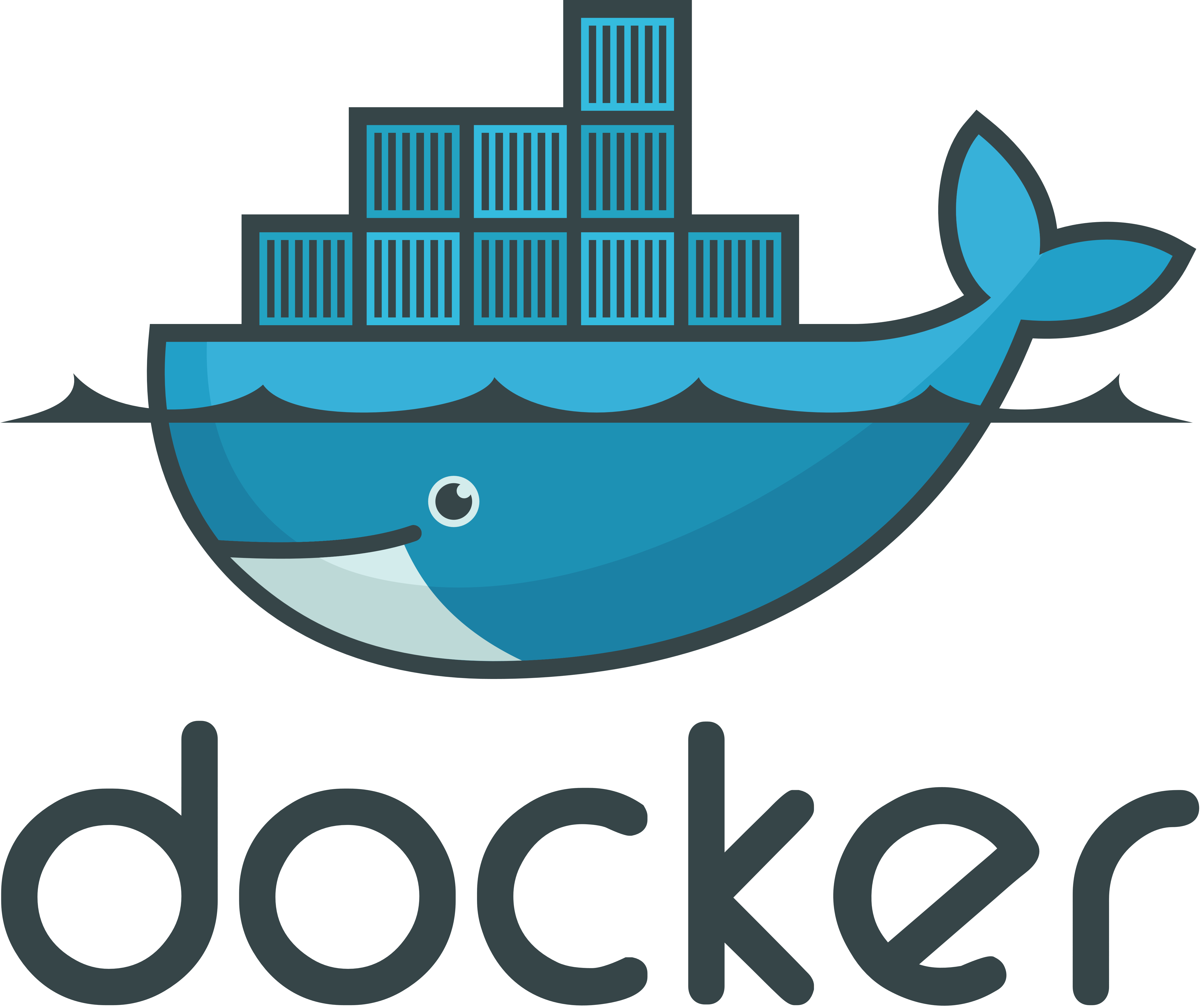├── Dockerfile
├── README.md
├── app.py
├── assets
└── temp.txt
├── confs
└── supervisord.conf
├── docker-compose.yaml
├── requirements.txt
└── tasks.py
/Dockerfile:
--------------------------------------------------------------------------------
1 | # Dockerfile for building the inference application and Celery Worker
2 | FROM continuumio/miniconda3:latest
3 | COPY ./assets /assets
4 | COPY app.py .
5 | COPY tasks.py .
6 | COPY requirements.txt .
7 | RUN pip3 install -r requirements.txt
8 | RUN apt-get update && apt-get install -y supervisor
9 | COPY confs/supervisord.conf supervisord.conf
10 | EXPOSE 8080
11 | CMD [ "supervisord" ]
--------------------------------------------------------------------------------
/README.md:
--------------------------------------------------------------------------------
1 | # Asyncronous Processing pipelines in Python
2 |
3 |
10 | Set up an async pipeline in python using Celery, RabbitMQ and MongoDB. This repo covers the end to end deployment of an async pipeline for your projects using Docker
11 |
12 | # Quickstart
13 |
14 | 1. Clone the repo
15 | 2. Make sure Docker and Docker Compose are installed
16 | ```bash
17 | $ pip install docker-compose
18 | ```
19 | 3. Start the docker containers
20 | ```bash
21 | $ docker compose up --build
22 | ```
23 | 4. Check the pipeline using FastAPI endpoints
24 | ```bash
25 | # To start processing a task
26 | $ curl -X POST http://localhost:8080/process
27 | # To check the progress of a task
28 | $ curl -X POST http://localhost:8080/check_progress/
29 | ```
30 | # Setting up your tasks
31 | You can use this pipline to run your custom tasks. You just have to modify the [tasks.py](https://github.com/aarunjith/async-demo/blob/main/tasks.py) and connect it to a fastapi endpoint for trigger
32 |
--------------------------------------------------------------------------------
/app.py:
--------------------------------------------------------------------------------
1 | # Lets create a simple FastAPI service which listens to our API calls
2 | # to start processing our task
3 |
4 | from fastapi import FastAPI
5 | from celery.result import AsyncResult
6 | from tasks import start_processing
7 | from loguru import logger
8 | from pymongo import MongoClient
9 | import uvicorn
10 |
11 | # Lets create a connection to our backend where celery stores the results
12 | client = MongoClient("mongodb://mongodb:27017")
13 |
14 | # Default database and collection names that Celery create
15 | db = client['task_results']
16 | coll = db["celery_taskmeta"]
17 |
18 | app = FastAPI()
19 |
20 |
21 | @app.post('/process')
22 | async def process_text_file():
23 | '''
24 | Process endpoint to trigger the start of a process
25 | '''
26 | try:
27 | result = start_processing.delay()
28 | logger.info(f'Started processing the task with id {result.id}')
29 | return {
30 | "status": result.state,
31 | 'id': result.id,
32 | 'error': ''
33 | }
34 | except Exception as e:
35 | logger.info(f'Task Execution failed: {e}')
36 | return {
37 | "status": "FAILURE",
38 | 'id': None,
39 | 'error': e
40 | }
41 |
42 |
43 | @app.post('/check_progress/{task_id}')
44 | async def check_async_progress(task_id: str):
45 | '''
46 | Endpoint to check the task progress and fetch the results if the task is
47 | complete.
48 | '''
49 | try:
50 | result = AsyncResult(task_id)
51 | if result.ready():
52 | data = coll.find({'_id': task_id})[0]
53 | return {'status': 'SUCEESS', 'data': data['result']}
54 | else:
55 | return {"status": result.state, "error": ''}
56 | except Exception as e:
57 | data = coll.find({'_id': task_id})[0]
58 | if data:
59 | return {'status': 'SUCEESS', 'data': data['result']}
60 | return {'status': 'Task ID invalid', 'error': e}
61 |
62 | if __name__ == "__main__":
63 | uvicorn.run("app:app", host='0.0.0.0', port='8080')
64 |
--------------------------------------------------------------------------------
/assets/temp.txt:
--------------------------------------------------------------------------------
1 | hello
--------------------------------------------------------------------------------
/confs/supervisord.conf:
--------------------------------------------------------------------------------
1 | [supervisord]
2 | nodaemon=true
3 |
4 | [program:fastapi]
5 | command=python3 app.py
6 |
7 | [program:celery]
8 | command=celery -A tasks worker --loglevel=info
--------------------------------------------------------------------------------
/docker-compose.yaml:
--------------------------------------------------------------------------------
1 | version: "3.9"
2 | services:
3 | api:
4 | build: .
5 | ports:
6 | - "8080:8080"
7 | depends_on:
8 | - mongodb
9 | - rabbitmq
10 | networks:
11 | - app-network
12 | mongodb:
13 | image: mongo:latest
14 | ports:
15 | - "27017:27017"
16 | networks:
17 | - app-network
18 | rabbitmq:
19 | image: rabbitmq:latest
20 | ports:
21 | - "5672:5672"
22 | networks:
23 | - app-network
24 |
25 | networks:
26 | app-network:
27 | driver: 'bridge'
--------------------------------------------------------------------------------
/requirements.txt:
--------------------------------------------------------------------------------
1 | celery
2 | fastapi
3 | loguru
4 | pymongo
5 | pymongo[srv]
6 | uvicorn
--------------------------------------------------------------------------------
/tasks.py:
--------------------------------------------------------------------------------
1 | from celery import Celery
2 | import time
3 | from loguru import logger
4 |
5 | app = Celery('ROFL', broker="amqp://rabbitmq:5672",
6 | backend="mongodb://mongodb:27017/task_results")
7 |
8 |
9 | # This is the task that celery tries to execute. bind=True specifies the task is
10 | # bound and are required for task retires and accessing the task status
11 |
12 |
13 | @app.task(bind=True)
14 | def start_processing(self):
15 | # Lets simulate a long running task here. By long running we are
16 | # talking even tasks that take just a minute even. Lets pretend to
17 | # read a file that takes 1 minute to be read, and it contains just
18 | # a "Hello World"
19 | logger.info('Reading a book :|')
20 | with open('assets/temp.txt', 'r') as file:
21 | result = file.read()
22 | time.sleep(60)
23 | logger.info('Done reading a book :)')
24 | return result
25 |
--------------------------------------------------------------------------------







